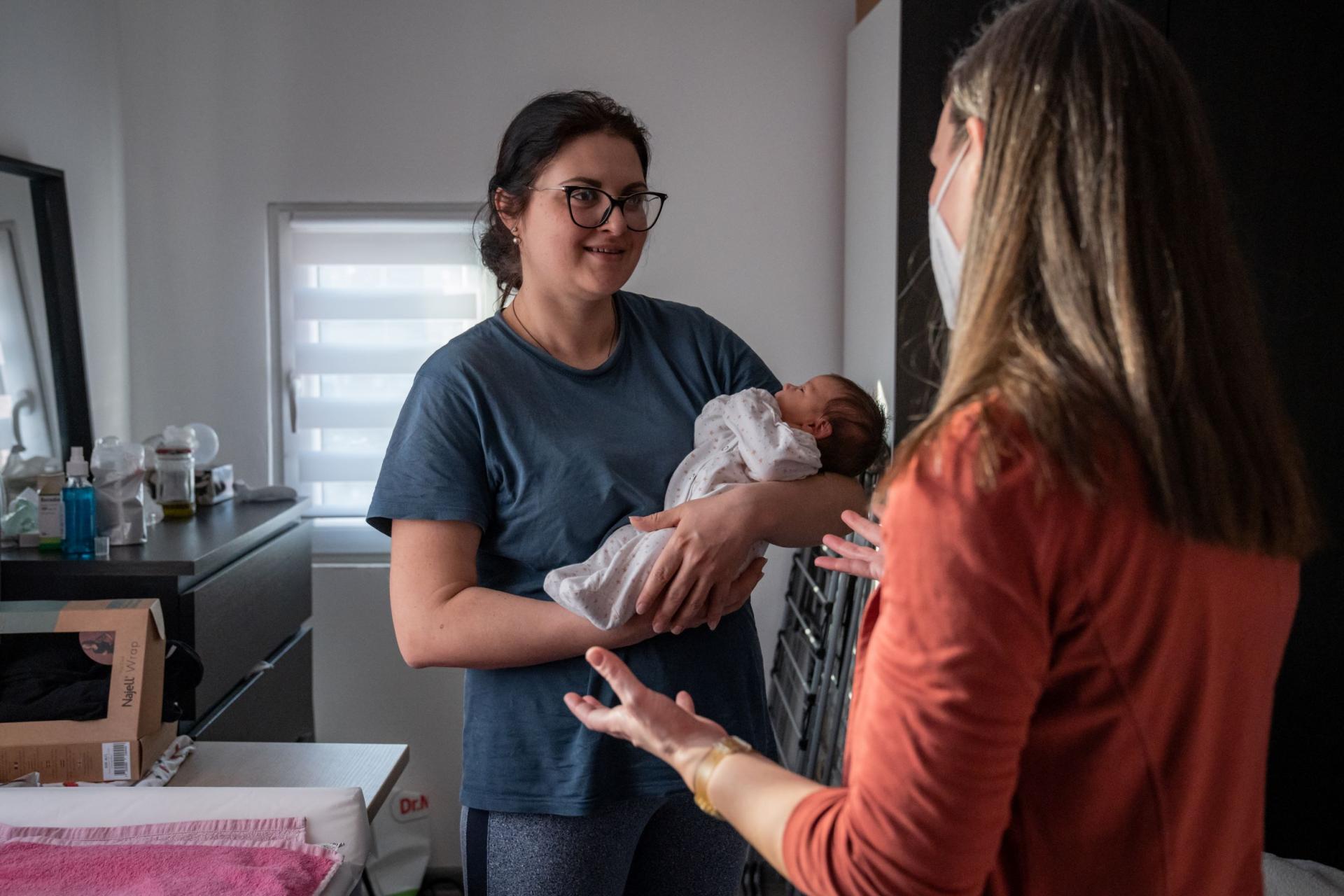The midwife's essential role in women's and community health
The midwife is the specialist who supports women in understanding their own bodies. Through their expertise, midwives provide education and counseling on the menstrual cycle, fertility, pregnancy, childbirth, childbirth, breastfeeding and newborn care, all essential aspects of women's health.
In a society that has separated childbirth and motherhood from their natural nature, midwives remind women that reproductive health is not just about the biological aspects, but also involves emotional, psychological and social factors.
Education plays a fundamental role in autonomy and safety. The midwife therefore informs and guides women about contraceptive methods, the importance of consent and their rights. The midwife also provides support in recognizing and preventing abuse, encouraging women's confidence in their own decisions and abilities.
During motherhood, the midwife is a constant support. She listens without prejudice, answers questions, offers emotional support and information based on science and experience. The midwife is there for women in moments of uncertainty and vulnerability, offering reassurance and confidence.
Beyond clinical expertise, midwives play a crucial role in promoting women's health by providing evidence-based education and ensuring access to personalized, respectful and informed care. Midwifery contributes significantly to reducing maternal and infant mortality rates and promoting the holistic wellbeing of families and communities.
The midwife is more than a symbol of motherhood. The midwife is a trained, university-educated professional with continuing education and training, dedicated to the health of women and families.
The midwife is there for every woman, family and community.
Being or becoming a midwife involves rigorous educational preparation and a deep commitment to improving sexual and reproductive health. Midwives must complete formal education programs, which usually include both academic coursework and extensive clinical practice. Midwives study subjects such as anatomy, physiology, prenatal and postnatal care, labor and birth management, newborn care, contraception and reproductive rights.

We assess the need for training programs and the interest of potential candidates for future midwifery schools.

We aim at:
The Midwifery Journal Club aims to create a community for midwives, nurses practicing on obstetrics and gynecology wards and midwifery students, providing a framework for evidence-based discussion and clinical experiences.
